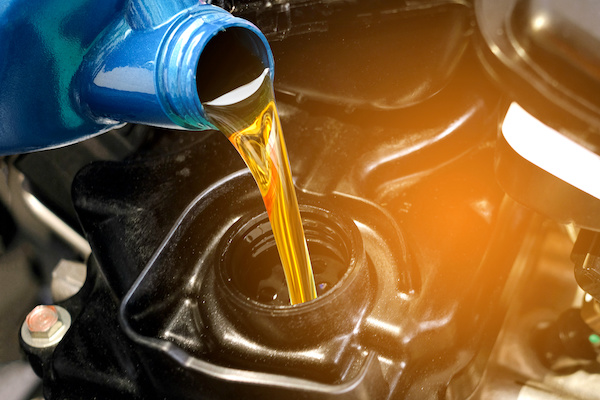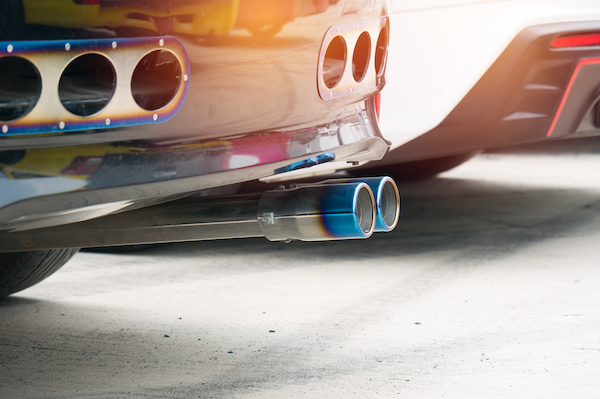Posted on 7/16/2021

Oil changes are arguably the most important (and most frequent) maintenance service that every driver needs in their lifetime. This grease is responsible for keeping your engine adequately lubricated and absorbing excess to prevent overheating. Though all engine oil serves the same purpose, there are different kinds—the three types of oil are synthetic, semi-synthetic, or conventional oil. At Tom's Auto Center, our mechanics can give you a consultation and recommend which type is best suited for your vehicle. The 3 Types of Motor Oil Synthetic Synthetic oil is chemically engineered in a lab to be more consistent and high-performing. It is highly effective at reducing friction and withstanding sweltering temperatures. Its chemical compounds benefit your vehicle by improving fuel efficiency and increasing horsepower. Synthetic oil is often recommended for cars that demand peak-level performance. The most desirable benefit of synthetic oil is its longer-la ... read more
Posted on 6/30/2021

Most people only think of the exhaust pipe whenever they hear "exhaust system." However, many parts make up the system, and the muffler is one of those parts that play a vital role. Purpose of a Muffler As the name suggests, a muffler "muffles" the excess sound made from the engine. Your motor engine needs to generate a substantial amount of energy to power your car. It creates sounds that travel through the exhaust pipe as a byproduct. Without a functioning muffler, your car ride will be obnoxiously loud. Some drivers and motorcyclists choose to go without a muffler for an aesthetic purpose. Many believe that removing the muffler gives the car more power and ultimately more speed, but that is a common misconception. There are also a handful of individuals who simply just procrastinate getting it fixed. Regardless of whether it is a personal choice, you should really consider using the muffler for its intended purpose. Cons of Havin ... read more
Posted on 5/26/2021
.jpeg)
Most drivers and car owners know that their vehicles need regular service to keep running optimally. But not many people fully understand the consequences of missing scheduled vehicle service. If you drive without taking your car for regular services, here are some of the problems you can expect. Safety Risk Failing to subject your vehicle to regular maintenance can put you at risk of avoidable accidents. For instance, if brakes are not regularly serviced, they can fail when you need them most and lead you to serious problems. Poor Fuel Economy A well-maintained car operates optimally and does not consume a lot of fuel. On the other hand, skipping scheduled maintenance can gradually reduce your vehicle's efficiency and force it to consume more fuel than necessary. In other words, if you do not subject your car to regular maintenance, you will have to spend more on gas. Clogged Engine Engine clogs can develop due to the accumulation of sand, dust, and moisture. Regular service ... read more
Posted on 4/26/2021
.jpeg)
If you are a new car owner, you must be wondering what a timing belt is and what functions it plays in a car. You have come to the right place. A timing belt is a toothed belt that controls the rotation of the engine crankshaft and camshaft as well as the way the engine valves open and close to allow gasoline and air in and out. Fundamentally, it coordinates the functions of an engine making fuel burn in the combustion chamber or it ensures that all the internal moving parts are in tandem. When should you replace the timing belt? Considering that it has such a crucial job, it is important to replace it regularly. Oftentimes, there is no sign that the belt is wearing out. Most of the time, the timing belt just breaks. This is the reason why most car manufacturers recommend that you replace it after covering 60,000 to 100,000 miles. Check your owner's manual to know what is recommended for your particular model. It will be cheaper to be proactive and replace the b ... read more
Posted on 3/17/2021
.jpeg)
The fuel light elicits one of the most worrying moments when driving. It can spell doom when driving in the countryside or a location you may not be familiar with. Fortunately, most vehicles can move for considerably long distances with the fuel light on. However, running on an empty tank may cause the fuel pump to suck the oil debris at the bottom of the tank into the engine or get overheated. You may also stop in the middle of the highway and get inconvenienced or robbed. Your fuel tank should stay at least a quarter full unless it is necessary to drive when empty. What Is The Distance That You Can Cover On An Empty Tank? The distance you can drive on an empty tank depends on the model of your vehicle. Most vehicles show the fuel warning when the tank is a 16th full. Models like Ford (F-150, Fusion, and Escape), Toyota Corolla, and Jeep Wrangler can run up to 80 miles when the fuel light is on. (Assuming you are driving at an average of 70 mph). High fuel economy m ... read more